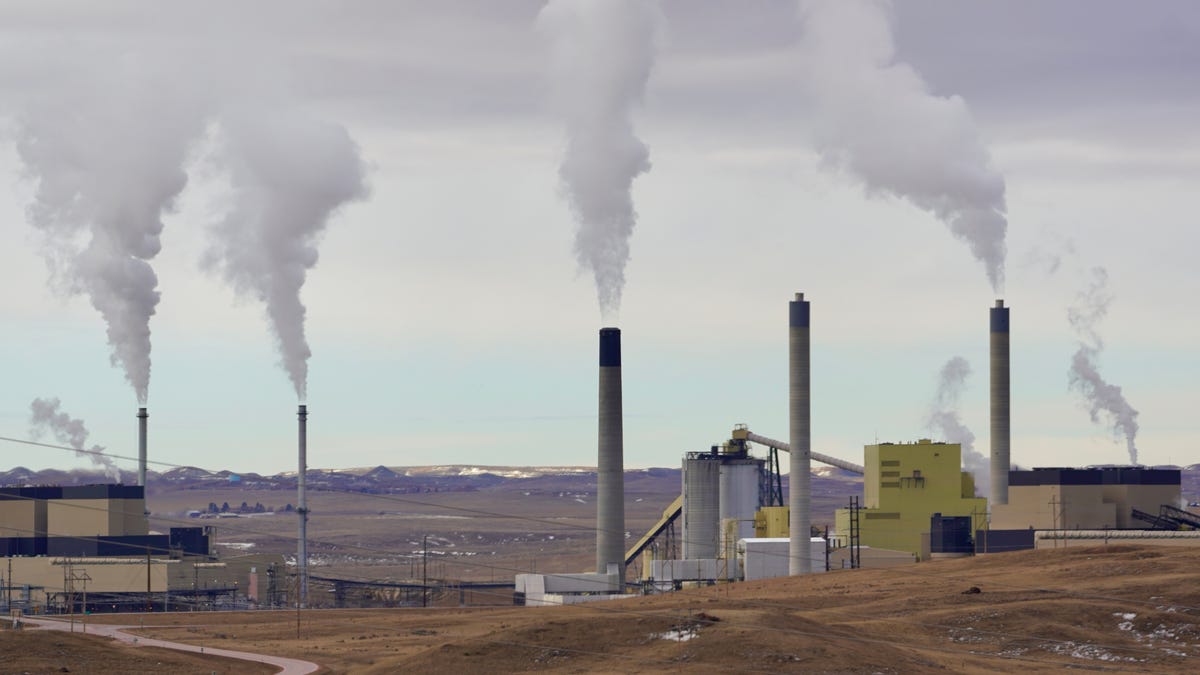Billionaires Warren Buffett and Bill Gates have chosen a remote town in Wyoming to build a new small nuclear power plant intended to help replace the coal-fired plants dotting the state.
Pending federal and local approval, TerraPower will build the $4 billion, 345-megawatt facility at the Naughton Power Plant in Kemmerer, Wyoming, about 130 miles northeast of Salt Lake City, the company announced Tuesday.
The relatively small “Natrium” reactor is similar to those used in some U.S. Navy submarines, and is designed to be faster and cheaper to build, and safer to run, than traditional large-scale reactors. The project has broad support from Wyoming’s conservative political leaders and from the Biden administration.
“The Natrium reactor is the future of nuclear energy in America. It makes perfect sense to have it in Wyoming, the energy capital of the United States. Wyoming’s economy will grow from having this groundbreaking technology in our state,” U.S. Sen. John Barrasso, a Wyoming Republican, said in a statement to USA TODAY. “Our abundant energy sources including coal, oil, natural gas, renewables, and now nuclear power will continue to provide good-paying jobs. Americans across the country will depend on Wyoming energy for decades and decades to come.”
Buffett’s Berkshire Hathaway owns the coal-fired Naughton plant, and is shutting it down as part of the company’s efforts to transition to cleaner fuels such as wind and solar. Nuclear power plants don’t emit carbon pollution, and are considered by many experts to be a necessary step in reducing emissions to combat climate change.
Gates’ TerraPower is partnering with GE-Hitachi to build the plant, which could be running within seven years, as mandated by federal officials. Putting the reactor adjacent to a coal-fired power plant takes advantage of existing infrastructure, including cooling water and high-capacity transmission lines. The plant would operate for 60 years, company officials said.
“This project is an exciting opportunity to explore what could be the next generation of clean, reliable, affordable energy production while providing a path to transition for Wyoming’s energy economy, communities and employees,” Gary Hoogeveen, president and CEO of Rocky Mountain Power, a division of Berkshire Hathaway’s PacifiCorp, said in a statement.

TerraPower officials say about 2,000 workers will be needed for construction at the project’s peak, with about 250 people working at the plant once operating. The 345-megawatt plant would produce enough power for roughly 250,000 homes, with the capacity to provide 500 megawatts during peak demand. Federal matching funding for the reactor was included in the $1.2 trillion Infrastructure Investment and Jobs Act signed by President Joe Biden on Monday. Kemmerer has about 2,700 residents.
Many of Wyoming’s elected officials see the proposal as a potential lifeline for a state heavily dependent on mining and burning coal.
“This is great for Kemmerer and great for Wyoming,” Kemmerer Mayor Bill Thek said in a statement provided by TerraPower.
Wyoming Gov. Mark Gordon also backs the plan, arguing that new nuclear plants could provide a market for the state’s large reserves of radioactive uranium ore.
The proposed plant uses uranium to heat liquid sodium metal to about 900 degrees F – natrium is an old word for sodium – which then makes steam to power a turbine to generate electricity. Using liquid sodium instead of traditional high-pressure coolant allows this reactor to operate at lower pressures, in theory making it less likely to suffer a meltdown like 1979’s Three Mile Island or the 1986 Chernobyl disaster.
Although similar reactor systems have been built before, the Natrium project is considered to be a test by the federal government, which is footing up to half of the price tag. Because the Natrium plant is smaller and uses modern technology, its backers say it could be built faster and cheaper than a traditional large-scale nuclear power plant, primarily because it uses less expensive concrete to contain the reactor. Gates and Buffet said that once successfully demonstrated, the plant could be quickly expanded or replicated elsewhere.
“The energy communities that have powered us for generations have real opportunities to power our clean energy future through projects just like this one, that provide good-paying jobs and usher in the next wave of nuclear technologies,” Energy Secretary Jennifer Granholm said in a statement.
Federal officials say the plant will produce nearly 3 million megawatt hours of carbon-free power annually and avoid almost 2 million metric tons of carbon that would otherwise have been emitted by a traditional power plant. It would be powered with fuel that is up to four times more powerful than the 5% enriched uranium typically used in nuclear power plants, and TerraPower is working with the federal government to develop a U.S.-controlled source of the fuel.
Today, coal and nuclear power plants across the country each generate about 20% of the nation’s electricity, with renewables making up another 20%, and natural gas the remaining 40%.
Wyoming is the nation’s leading producer of coal, which is burned to make electricity serving residents mainly in Oregon, California, Colorado and Washington. There are 55 commercial nuclear power plants in the United States, spread across 28 states. The newest power reactor opened in 2016, and there are two nuclear reactors under construction at a power plant in Georgia.
The company considered three other sites: Rock Springs, Gillette and near Glenrock in east-central Wyoming.

